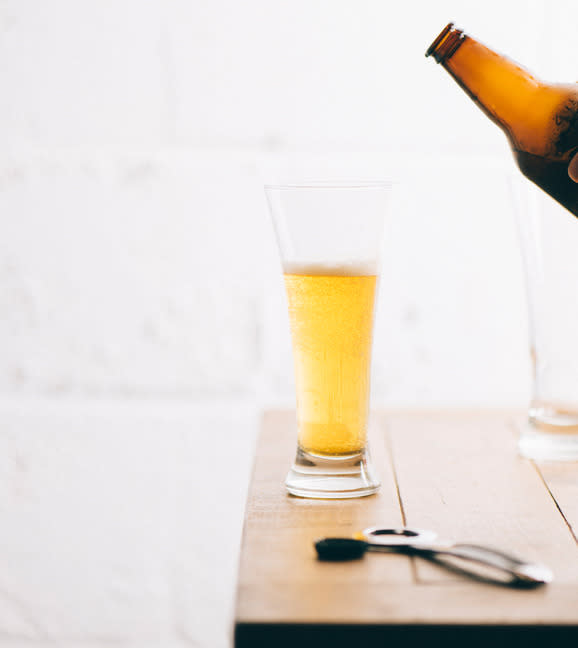What’s Wrong With the CDC’s Suggestion That Women Not Using Contraceptives Shouldn’t Drink

The CDC’s new guidelines are all kinds of shame-y. (Photo: Stocksy)
In a press release yesterday, Feb. 2, the Centers for Disease Control and Prevention advised sexually active women who don’t use contraception to avoid drinking alcohol.
“It is critical for healthcare providers to assess a woman’s drinking habits during routine medical visits; advise her not to drink at all if she is pregnant, trying to get pregnant or sexually active and not using birth control; and recommend services if she needs help to stop drinking,” Coleen Boyle, PhD, director of CDC’s National Center on Birth Defects and Developmental Disabilities, said in a statement.
“About half of all pregnancies in the United States are unplanned, and even if planned, most women won’t know they are pregnant for the first month or so, when they might still be drinking,” CDC principal deputy director Anne Schuchat, MD, said. “The risk is real. Why take the chance?”
And that’s where the trouble lies. The recommendation sounds great in theory, but in practice, it’s more than a little patronizing.
Yes, the risk is real. So is the risk of getting in a car crash before you know you’re pregnant, or eating sushi or drinking unpasteurized juice. As appealing as it sounds to eliminate all risks, it’s just not feasible. A zero-risk world doesn’t exist. The idea that women should abstain from having a drink with dinner or going to a bar with friends just because they’re of childbearing age is hard to swallow.
Fetal alcohol syndrome is awful and, as the CDC highlighted, disturbingly common. And it is, in large part, preventable. But are blanket statements like this one actually preventing anything? At a time when we’re still fighting for the right to choose, this hits a little too close to home. Not only is it reinforcement of the idea that our bodies aren’t our own, but rather containers for tiny humans, and it adds another layer of pain to the anti-abortion discussion.
What about women who drink while using birth control and still get pregnant? (Yes, it happens, and it’s more common than you think). Whose fault is it then? If they live in states where abortion is hard to access or extremely limited, what should they do? Should all sexually active women stop drinking, whether they use contraception or not, to truly reach a point of zero risk?
The sweeping recommendation is a bummer because there is an important nugget of information in the CDC’s report: “3 in 4 women who want to get pregnant as soon as possible do not stop drinking alcohol when they stop using birth control,” the CDC says. While it makes sense that women who are trying to get pregnant have a few drinks now and then (the process can take a while and usually isn’t a lifestyle overhaul) it’s smart to limit alcohol use if they think they could be in the early stages of pregnancy.
Read This Next: These 6 Questions Can Predict Your Risk of Having an STI
Let’s keep in touch! Follow Yahoo Health on Facebook, Twitter, Instagram, and Pinterest.